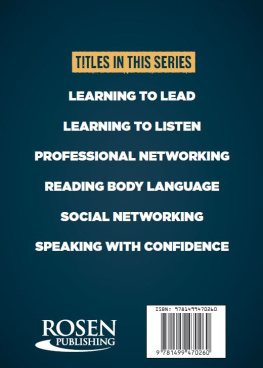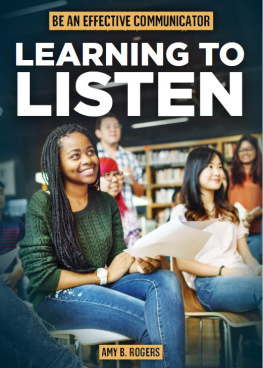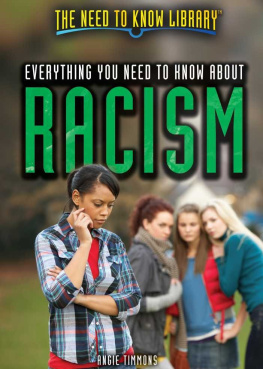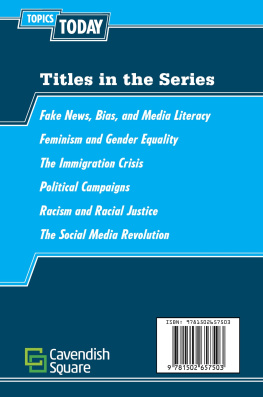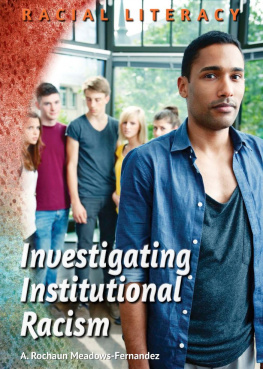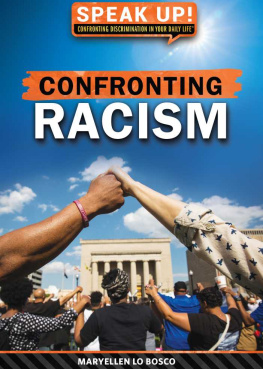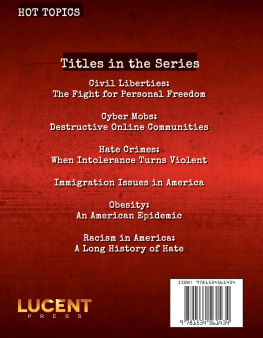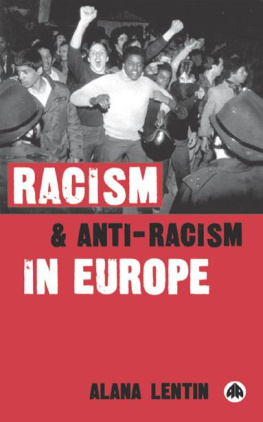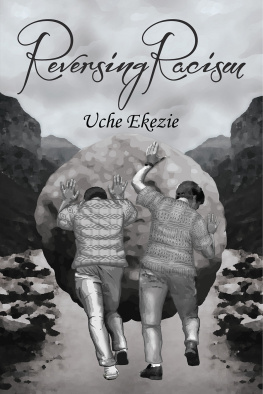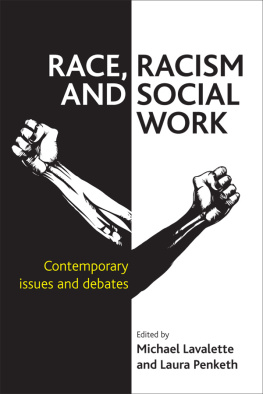Table of Contents
Whats the
Issue?
WHATS RACISM?
By Amy B. Rogers
Published in 2018 by
KidHaven Publishing, an Imprint of Greenhaven Publishing, LLC
353 3rd Avenue
Suite 255
New York, NY 10010
Copyright 2018 KidHaven Publishing, an Imprint of Greenhaven Publishing, LLC.
All rights reserved. No part of this book may be reproduced in any form without permission in
writing from the publisher, except by a reviewer.
Designer: Deanna Paternostro
Editor: Katie Kawa
Photo Credits: Cover (top) vasara/Shutterstock.com; cover (bottom) istockphoto.com/VLIET; p. 4
iofoto/Shutterstock.com; pp. 5, 6, 7, 21 Rawpixel.com/Shutterstock.com; pp. 89 Maria Kazanova/
Shutterstock.com; p. 10 Sergei Bachlakov/Shutterstock.com; p. 11 Para/Wikimedia Commons;
p. 12 Andy Dean Photography/Shutterstock.com; p. 13 ESB Professional/Shutterstock.com;
p. 14 mark reinstein/Shutterstock.com; p. 15 Stephen Maturen/Stringer/Getty Images News/
Getty Images; p. 17 Mat Hayward/Shutterstock.com; p. 19 Joseph Sohm/Shutterstock.com;
p. 20 Rido/Shutterstock.com.
Cataloging-in-Publication Data
Names: Rogers, Amy B.
Title: Whats racism? / Amy B. Rogers.
Description: New York : KidHaven Publishing, 2018. | Series: Whats the issue? | Includes glossary
and index.
Identiers: ISBN 9781534525054 (pbk.) | 9781534524378 (library bound) | ISBN 9781534525061
(6 pack) | ISBN 9781534524385 (ebook)
Subjects: LCSH: Racism--Juvenile literature.
Classication: LCC HT1521.R64 2018 | DDC 305.800973--dc23
Printed in the United States of America
CPSIA compliance information: Batch #CW18KL: For further information contact Greenhaven Publishing LLC, New York, New York at 1-844-317-7404.
Please visit our website, www.greenhavenpublishing.com. For a free color catalog of all our
high-quality books, call toll free 1-844-317-7404 or fax 1-844-317-7405.
The Opposite of Equality
Is Race Real?
The Dangers of Stereotypes
A Long and Painful History
Prejudice Based in Fear
The Fight Continues
Talk About It
From the NAACP
to Black Lives Matter
Real Problem, Real Solutions
Glossary
For More Information
Index
CONTENTS
The Opposite of Equality
The world would be a boring place if everyone looked the
same! However, some people dont like certain groups because
they look different. They treat others poorly because they see
them as part of a different race, which is a group of people who
look alike in certain ways. This unfair way of treating people is
called racism.
Racism has hurt people throughout history and still hurts
people today. It goes against the idea that everyone should
be treated equally. How can you ght against racism?
Read on to nd out!
One way to ght racism
is to treat everyone with
kindness and respect.
According to a 2016 study, 61 percent
of Americans said they believe more
work needs to be done to make sure
people of all races are treated equally.
Facing the Facts
Is Race Real?
Racists believe humankind is made up of different races of
people, and one race is better than all the others. Scientists have
discovered, though, that humans arent as different as racists
think they are.
Racial differences dont actually exist in human genes ,
and theres no one set of traits people of one race all share.
Race is a way of grouping people that was created by humans.
Its not something that separates humans from each other in
nature. In fact, all humans are part of the same species, or
group of living things.
Humans arent naturally separated by race. However, racism still
exists because some people look for ways to easily group others
who they see as differenteven if those ways arent based in facts.
Is Race Real?
In the United States, racism
has always worked in favor
of white people.
Facing the Facts
The Dangers of Stereotypes
Where do racist beliefs come from? In many cases, they
come from a lack of experience with people of different races.
Humans look for easy and fast ways to group people together.
They often do this using stereotypes, which are ideas about
all the people of one group that are often overly simple and
sometimes completely untrue.
If people dont take the time to get to know people of
different races, they often believe stereotypes about all the
members of one race. Learning about others is a key to
ghting racism.
Scientists have stated that making friends
with people from different groups is a
good way to move beyond stereotypes.
Facing the Facts
Words to
Know
What does it mean?
Whats the word?
unfair treatment of people or
groups who are different from
other people or groups
a bad feeling about a person or
group thats not based in facts
the act of setting people
apart from each other based
on differences
an idea thats formed about all
the people in one group thats
often untrue or only partly true
the unfair treatment of people
of different races by a whole
society or government
discrimination
prejudice
segregation
stereotype
systemic racism (also known
as institutional racism)
When people talk about racism, they often use these words. Its
important to know what they mean and why they can hurt people.
A Long and Painful History
The United States has a long and painful history of racism.
For more than 200 years, white people used racist beliefs about
people from Africa to justify the practice of slavery. Even after
slavery was abolished, or ended, in 1865, racism continued.
The civil rights movement of the 1950s and 1960s
worked to ght discrimination against African Americans and
segregation in schools, on buses, and in many other places.
Although many laws were passed during this time to end these
unfair practices, racism didnt go away completely. Its hard to
change peoples beliefseven when theyre unfair.
White settlers used racist
stereotypes about Native
Americans to justify taking
their lands and treating
them poorly.
Facing the Facts
One of the leaders of the civil rights movement was Dr. Martin
Luther King Jr. His most famous speech is called I Have a
Dream, and it was about his dream that people of all races
would one day be treated equally in the United States.
A Long and Painful History
Prejudice Based in Fear
Other groups have also had to deal with racism in the
United States. For example, Asian Americans have dealt with
racism ever since Chinese workers were rst discriminated
against in the 1800s.
In addition, people with Middle Eastern roots, also known


